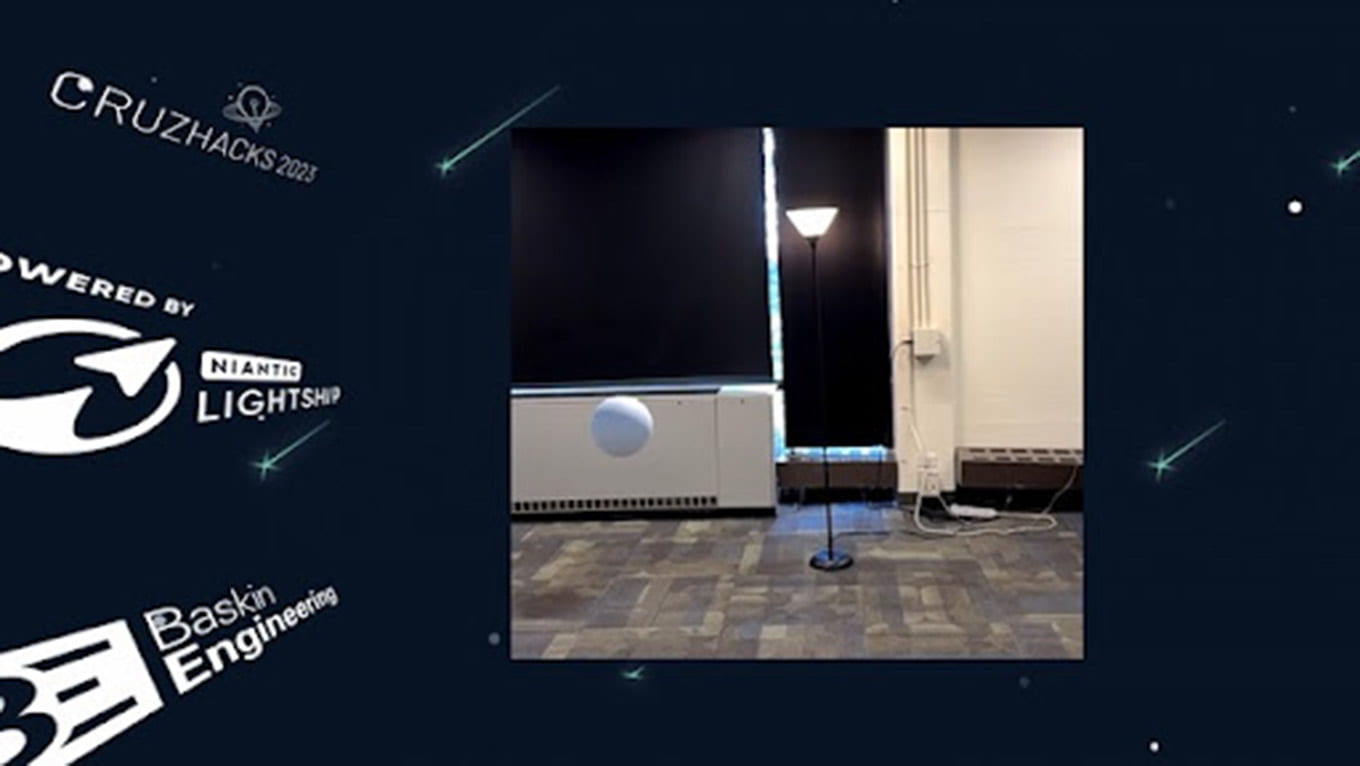Blending augmented reality (AR), out-of-the-box innovation, and tech for social good, UC Santa Cruz Baskin Engineering undergraduate student Rob Lodes and friend James Montoya created an AR program, called Niahactic, that allows people living with physical disabilities to seamlessly and intuitively interact with objects in their environment.
Think about turning on a light switch. Someone with limited mobility might have trouble doing it on their own, but through Niahactic, which uses a combination of cameras, sensors, and algorithms to track position and relay information, a person can move an object in the virtual space to then have it translate to the real-world physical space.
This platform, incorporating AR tools from the company Niantic, who has developed popular AR games like PokemonGo, was the 2023 CruzHacks sponsored grand prize winner. It was one of several projects that came to fruition at this year’s CruzHacks—the largest annual UCSC hackathon, bringing together hundreds of students in and out of UCSC.
Niantic was so impressed with the technology the team developed that they invited them to present their project at their two-day AR event held at the 2023 Game Developers Conference in San Francisco.

“Our project was well received and the presentation went great. Even my favorite games instructor Mason Remaley from UCSC was there to cheer us on,” said Lodes, who is majoring in the award-winning Baskin Engineering computer game design program and minoring in bioinformatics. “Having this level of support really fills me with joy.”
Both living with physical disabilities of their own, Lodes and Montoya wanted to come up with a system that would allow users to easily, comfortably, and independently interact with objects in their environment. Their innovative and inclusive system exemplifies the positive societal impact of technology encouraged by the Baskin School of Engineering at UCSC.
As the CruzHacks sponsored grand prize winner, Niahactic received a cash prize and the opportunity to partner with Niantic to further develop their prototype.
Visit Niahactic’s CruzHacks page to learn more.
– SHARE THIS STORY –
You May Also Be Interested In
-

2025 Dean’s Awards highlight outstanding Baskin Engineering undergraduate research in AI, cybersecurity, biomedicine, and more
-

Baskin Engineering students sweep SC Launchpad 2025 awards in technology and social impact categories
-

First annual UC Open Summit highlights open source innovation in the UC system

